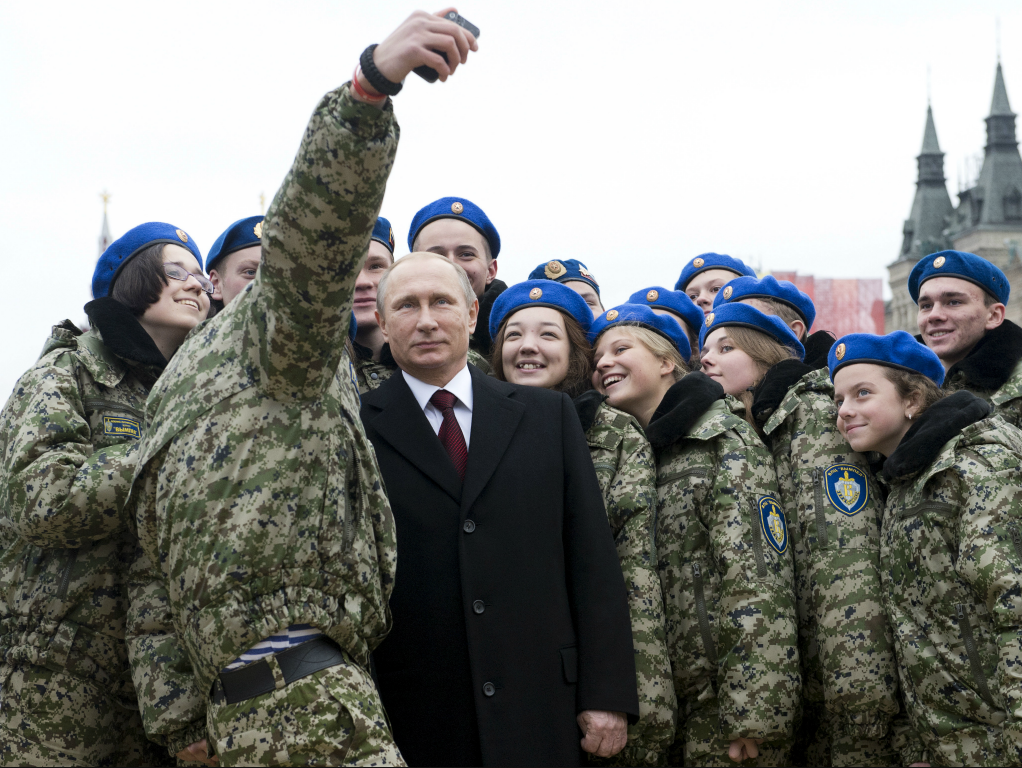Russian military bans selfies to prevent soldiers revealing locations
Journalists have previously used Russian military selfies to reveal international deployment

Russian soldiers may soon face legal consequences if they whip out their smartphones to take a quick snap of themselves and their comrades in arms.
The Russian military has reportedly drafted a law to ban military personnel from taking selfies in a bid to stop soldiers from inadvertently revealing locations.
In previous incidences, seflies published online have revealed Russian troop deployments to Ukraine and Syria, after internet users identified their locations.
A proposal for draft amendments to the Law on the Status of Military Personnel was published on the federal portal for draft regulations on Wednesday, and will update the law that was drafted before the advent of social media.
The law says photographs, videos and other media can compromise the military by giving the enemy useful information. Some media is traceable via automatic geolocation which can immediately reveal where a unit has been deployed - in some cases location data is accurate to within a few metres.
Journalists have previously used Russian military selfies to reveal locations.
In 2015, Vice News reporter Simon Ostrovsky posted a YouTube video documenting how a Russian soldier’s social media posts revealed the Russian military’s direct involvement in the Ukraine conflict.
The country has steadfastly maintained that “volunteers” are helping pro-Russian forces in the country, but has denied sending troops.
According to the Moscow Times, Russian group, the Conflict Intelligence Team (CIT), which monitors conflicts in Ukraine and Syria, found photos in November 2015 uploaded by Russian soldier Ayas Saryg-Ool, indicating he was in Hama, in west-central Syria.
In 2014 a geo-tagged seflie by a soldier from Russia’s 76th Airbourne regiment led investigative online organisation Bellingcat to discover that as many as 40 Russian troops had been killed in conflict in Ukraine.
The Russian Defence Ministry said foreign intelligence agencies, as well as extremist and terrorist organisations, use information posted by Russian soldiers on the internet to “destabilise the internal political and social situation in various regions of the world,” the Moscow Times reported.
The selfie ban is expected to come into force in January 2018.
Join our commenting forum
Join thought-provoking conversations, follow other Independent readers and see their replies
Comments